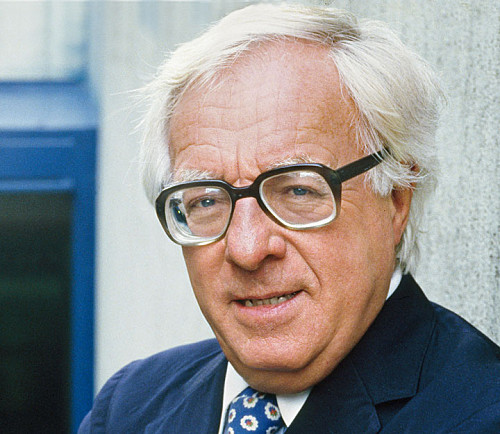Ray Bradbury
Ray Bradbury, born in Waukegan, Illinois, in 1920, is a towering figure in American literature, particularly noted for his works in science fiction and fantasy. His writing is characterized by poetic prose, a nostalgia for childhood, and sharp social criticism, interwoven with a deep awareness of the potential perils of runaway technology.

Bradbury’s literary journey was profoundly shaped by his early life experiences. His fascination with the fantastical began in childhood, spurred by horror films and the works of authors like L. Frank Baum and Edgar Rice Burroughs. A pivotal moment in his youth involved a carnival magician named Mr. Electrico who electrified Bradbury’s imagination, famously encouraging him to “Live forever!” through his writing. This encounter crystallized his commitment to becoming a writer, a path he pursued relentlessly throughout his life.
Bradbury’s oeuvre includes more than 400 short stories, nearly fifty books, and numerous poems, essays, plays, and screenplays. Among his most celebrated works are “Fahrenheit 451,” a dystopian novel about a future society where books are banned, “The Martian Chronicles,” a collection of intricately connected stories about the colonization of Mars, and “Something Wicked This Way Comes,” a dark fantasy novel about two boys’ harrowing experiences with a sinister traveling carnival.
His contributions to literature have been recognized with numerous awards, including a Pulitzer Prize Special Citation in 2007 for his distinguished career, reflecting his ability to transcend the boundaries of genre and form to explore universal truths about human nature and society.
Bradbury’s works not only garnered critical acclaim but also achieved popular success, resonating with readers and influencing countless writers and artists. His stories have been adapted into films, television shows, and even comic books, cementing his status as a central figure in American cultural history.
For further reading on Ray Bradbury’s life and works, you can explore detailed articles from Britannica and Wikipedia.
QUESTIONS FOR FURTHER DISCUSSION
- Exploring Dystopian Themes: How does Ray Bradbury’s “Fahrenheit 451” reflect his concerns about censorship and the role of technology in society? How are these themes relevant in today’s digital age?
- Influence of Early Experiences: In what ways did Bradbury’s childhood experiences and his early exposure to fantasy and science fiction literature shape the themes and settings of his works?
- Bradbury’s Style and Literary Devices: Ray Bradbury is known for his poetic style and rich metaphors. How do these elements enhance the thematic depth and emotional impact of stories like “The Martian Chronicles” and “Something Wicked This Way Comes”?
- Cultural and Historical Reflections: How do Bradbury’s works mirror the societal and cultural anxieties of his time? Consider the historical context of post-war America and the Cold War era in your discussion.
- Legacy and Influence on Modern Science Fiction: What impact did Ray Bradbury have on the science fiction genre, and how do contemporary authors draw inspiration from his work?
- Adaptations of Bradbury’s Work: How have adaptations of Bradbury’s stories into films and television series expanded or altered the reach and interpretation of his themes? What challenges do these adaptations face in staying true to the original material?
- Humanity and Morality in Bradbury’s Stories: Bradbury often explored the complexities of human nature and morality under extraordinary circumstances. Discuss how he uses alien and futuristic settings to comment on universal human behaviors and ethical dilemmas.
- Bradbury’s Views on Technology: Considering Bradbury’s often critical perspective on technological advancements, how did he express these views through his stories? What warnings or messages can we derive from his cautionary tales?
These discussion questions are aimed to deepen the understanding of Ray Bradbury’s literary contributions and explore the relevance of his themes in the contemporary world.
© 2024, wcadmin. All rights reserved, Writers Critique, LLC Unless otherwise noted, all posts remain copyright of their respective authors.




